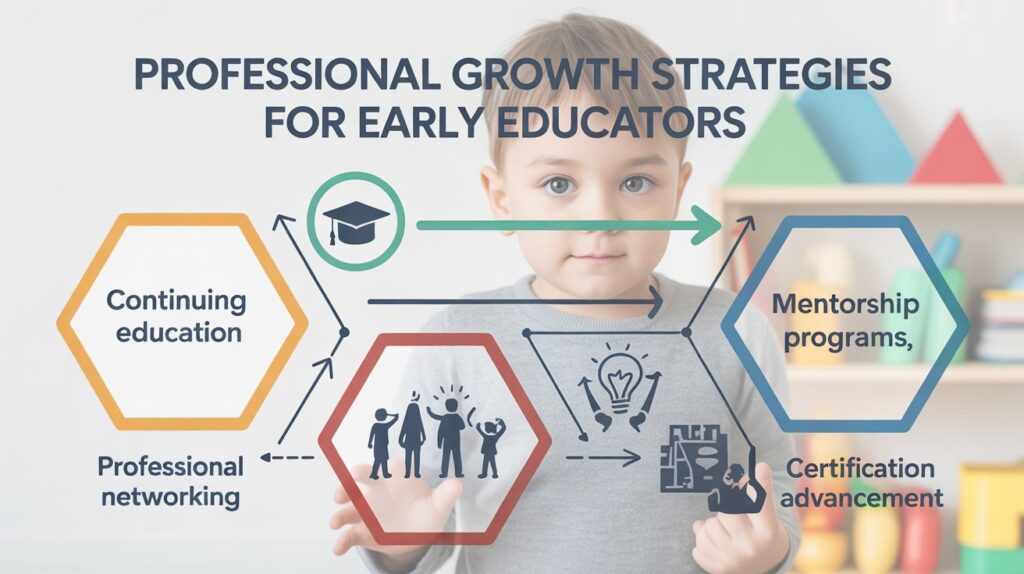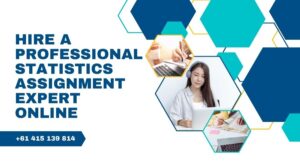
The early childhood education field is constantly evolving, driven by new research, changing family dynamics, and the growing importance of early learning. For educators, this means continuous professional growth isn’t optional—it’s essential. The best educators are lifelong learners who adapt, innovate, and reflect on their practices to provide the highest quality care and education to young children.
Professional growth doesn’t just enhance teaching skills—it deepens understanding, builds confidence, and reignites passion for the craft. Those pursuing a Master Early Childhood Education Online gain advanced knowledge to transform their classrooms and careers. But whether through formal education or self-driven development, every educator has opportunities to grow, evolve, and lead.
Understanding the Need for Professional Growth
Early educators play a vital role in shaping the foundation of a child’s life. To meet this responsibility, they must stay current with educational theories, brain development research, and pedagogical strategies. Professional growth ensures that teachers continue to evolve alongside new educational trends and technologies.
Unlike other fields, early childhood education relies heavily on relationships—between teachers, children, and families. Through ongoing learning, educators refine their communication, observation, and emotional intelligence skills. Continuous development also helps teachers remain responsive to children’s individual needs, fostering inclusive, nurturing environments.
Setting Clear Professional Goals
One of the first steps in professional growth is identifying clear goals. Educators should reflect on questions like: What areas of teaching do I want to strengthen? What challenges do I face in the classroom? Do I want to move into leadership or specialize in child development research?
Setting short-term and long-term goals creates a roadmap for progress. Short-term goals may include attending a workshop or reading educational literature, while long-term ones might involve earning advanced certifications or mentoring new teachers. The key is to create measurable, achievable objectives that align with personal passion and institutional needs.
Embracing Lifelong Learning
Lifelong learning is at the heart of professional development. The most effective educators view each experience—whether in the classroom, a seminar, or an online course—as a learning opportunity. Exploring new teaching techniques or revisiting developmental theories keeps their methods fresh and effective.
Online learning platforms have made it easier for educators to pursue higher education without interrupting their careers. Flexible programs allow teachers to study at their own pace while applying new concepts directly to their classrooms. Continuous learning empowers educators to innovate, problem-solve, and inspire others through evidence-based practices.
Mentorship and Peer Collaboration
Professional growth flourishes in a supportive community. Mentorship programs and peer collaboration are among the most effective ways to learn and grow. Experienced educators can share real-world insights, classroom management techniques, and emotional support that can’t be found in textbooks.
Collaborative environments encourage open dialogue and reflection. Peer observation, team teaching, and discussion groups give teachers the chance to learn from one another’s successes and challenges. When educators share strategies and reflect together, they not only improve their own skills but also strengthen the overall quality of education within their centers.
The Role of Reflective Practice
Reflection is one of the most powerful tools for professional growth. It encourages educators to look inward—to analyze their teaching methods, interactions, and outcomes. Reflection isn’t about self-criticism but about understanding what works, what doesn’t, and why.
Regular self-assessment can reveal patterns, highlight strengths, and expose areas needing improvement. Many teachers use journals, video recordings, or peer discussions as part of this process. Through reflection, educators become more intentional and mindful, improving their ability to respond to children’s needs in real time.
Integrating Technology in Professional Development
Technology has opened new doors for professional growth. Virtual workshops, online conferences, and digital learning communities provide educators with easy access to global knowledge. By participating in these spaces, teachers can exchange ideas with professionals worldwide, learn new teaching strategies, and stay updated on the latest early education trends.
Digital tools also support self-directed learning. Educators can explore child development podcasts, webinars, and research publications anytime, anywhere. Embracing digital learning not only enhances knowledge but also improves technological literacy—an essential skill in today’s classrooms.
Pursuing Advanced Education
For those ready to take their careers further, advanced degrees offer both personal and professional rewards. A Master Early Childhood Education Online equips educators with leadership, research, and curriculum design skills that extend beyond the classroom. This level of education prepares teachers to take on roles such as program directors, early education consultants, or policymakers.
Advanced study deepens understanding of how children learn and develop. It also empowers educators to influence educational standards and advocate for systemic improvements. In a field where early learning sets the foundation for lifelong success, highly trained educators are invaluable.
Building Emotional Intelligence and Resilience
Teaching young children requires patience, empathy, and resilience. Emotional intelligence—the ability to understand and manage one’s emotions while empathizing with others—is vital for creating supportive learning environments.
Professional development should include self-care and emotional awareness training. Educators who manage stress effectively are better equipped to respond calmly to challenges and maintain positive relationships with children and families. Building emotional resilience not only benefits personal well-being but also enhances classroom harmony and learning outcomes.
Staying Current with Research and Trends
Early childhood education is guided by ongoing research into how young minds learn best. Educators committed to growth should stay informed about new studies, practices, and educational philosophies.
For instance, understanding the latest neuroscience findings can help teachers adapt their methods to better align with children’s developmental needs. Similarly, staying updated on diversity, inclusion, and trauma-informed teaching ensures classrooms remain equitable and supportive for all learners.
The Importance of Networking
Networking plays a significant role in professional growth. Joining associations, attending conferences, or participating in online educator forums helps teachers connect with others who share their passion. Networking opens doors to new ideas, collaborations, and even career opportunities.
Engaging in professional communities also fosters a sense of belonging and motivation. Educators can share challenges, celebrate successes, and exchange practical strategies that enhance classroom effectiveness.
Leadership Development
Leadership isn’t confined to administrative roles—it begins in the classroom. Every educator has the potential to lead by example, inspire others, and advocate for best practices. Professional growth should include opportunities to develop leadership skills such as decision-making, communication, and mentorship.
By leading professional initiatives, mentoring colleagues, or contributing to curriculum design, teachers grow as professionals and elevate the quality of education across their organizations. Leadership training also equips educators to navigate change with confidence and clarity.
Creating a Personal Growth Plan
Every educator’s journey is unique, which is why creating a personal growth plan is crucial. This plan should outline professional aspirations, actionable steps, and timelines. It acts as both a guide and a motivator, helping educators track their progress and celebrate milestones.
Including both skill-based and personal goals ensures holistic development. For example, improving classroom management techniques may pair with building stronger communication with families. Periodic review of the plan keeps it relevant and aligned with evolving interests and career goals.
Conclusion
Professional growth for early educators is more than career advancement—it’s a lifelong journey of discovery, reflection, and purpose. By embracing learning, collaboration, and self-awareness, teachers strengthen their impact on young minds and communities.
From reflective practice and mentorship to advanced education and emotional development, every step contributes to creating more capable, compassionate, and confident educators. Growth doesn’t happen overnight, but with dedication and curiosity, every educator can evolve into the leader that children—and the field—need.




